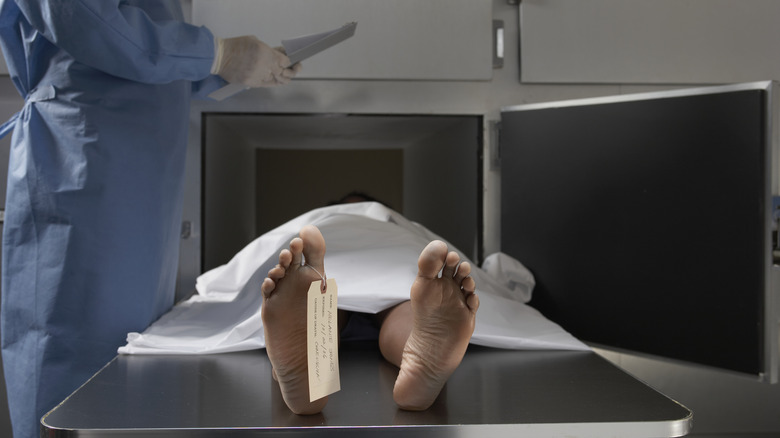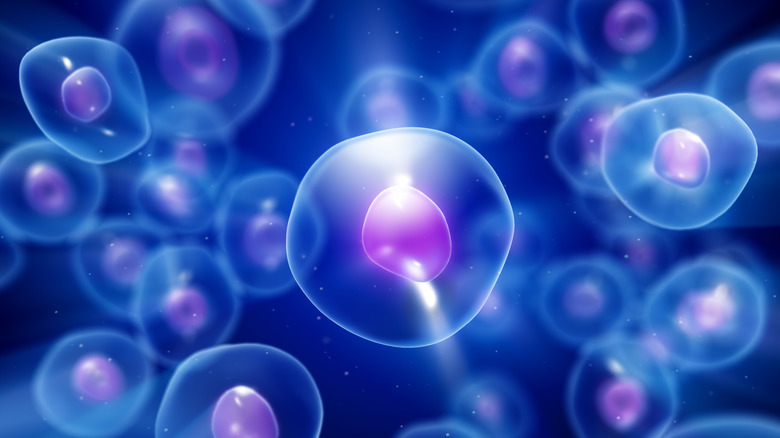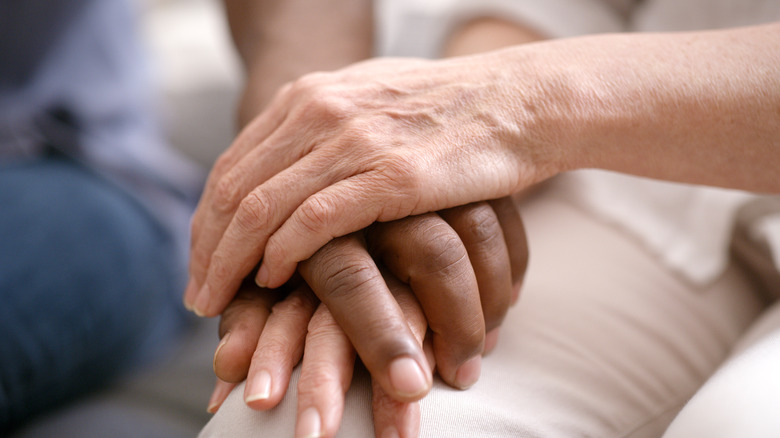The Unexpected Body Part That Eats Itself After Death
We may receive a commission on purchases made from links.
You might understand what happens to your body when you die from fiction — TV shows, movies, and books. Rarely, if ever, might you see the entire decaying process in real life, which science tells us can take anywhere from a few weeks to multiple months, depending on the environment. For example, the hotter the environment, the quicker the process of decomposition.
Your body goes through a series of different processes after death, each complex in its own right. Now deprived of oxygen and sustenance, your skin loses its lively palor and turns pale and blood begins to pool at the bottom of your body causing a purplish hue to take the place of your regular skin color. Your muscles too, react by going limp instantly after death and eventually stiffening in a process called "rigor mortis" which translates to "stiffness of death" in Latin.
There's also another process called "autolysis" which occurs when your body starts digesting itself from the inside out. It all starts in a part of your body's cells called the "lysosome" (the "stomach" of the cell). Each lysosome, about 0.1 to 1.2 micrometers in size, contains around 50 degradative enzymes and when your body's pH levels drop upon death, this lysosome's membrane gets breached, leading to a sort of free-roam of these enzymes within the cell. They set to work on breaking down and digesting the now-dying cell. Interestingly, lysosomes are also involved in another process called "autophagy" when there's still hope for the cell to survive.
Autolysis vs. autophagy
The best way to describe autophagy is to say that it's a process of self-cleaning that happens within the human cell when the cell is still salvageable. This is a natural process that occurs when we're alive. The enzymes inside a lysosome set to work on old or damaged organelles within the cell in a process called "autophagy" which translates to "eat its own self" or "self-eating". There is even a process where certain components that get released during this self-eating process are re-used by the cell. Autophagy is also useful for cell survival because the enzymes within the lysosome help provide necessary nutrients to a cell that needs them. This housekeeping and self-nourishing function of the enzymes is being studied for disease prevention and treatment.
With autolysis (the destruction of a cell via its own enzymes that mostly happens in dying or dead cells), the work of the lysosome is not to restore a cell back to its health but to break it down in its entirety. This happens because the cell is beyond salvaging and/or dying. It's a natural part of decomposing. The enzymes' activity is particularly rampant in lysosome-rich areas like the pancreas, stomach, liver, and brain.
Autolysis precedes the strange fart phenomenon that happens to your body after death, when your gut bacteria, unchecked by a functioning immune system, start digesting your intestines and other tissues, releasing gases like methane and ammonia.
Why it's important to understand decomposition
Apart from having to learn bits and pieces about cells and how they die at school, death is a topic we don't discuss often unless we're expected to do so at work or if someone close to us passes away. It's considered morbid or even taboo.
But knowing what happens in the final moments before death and understanding what comes after can be a way to remove some of the fear associated with the process, according to mortician Caitlin Doughty, who authored "Smoke Gets in Your Eyes: And Other Lessons from the Crematory" (via Medical News Today). It can also help stop some of the misinformation being spread about what happens to your body when you die: for example, the myth that dead bodies can spread disease easily.
"We can do our best to push death to the margins, keeping corpses behind stainless-steel doors and tucking the sick and dying in hospital rooms. So masterfully do we hide death, you would almost believe we are the first generation of immortals. But we are not ... [a] reminder of our fallibility is beneficial, and there is much to be gained by bringing back responsible exposure to decomposition," wrote Doughty.



